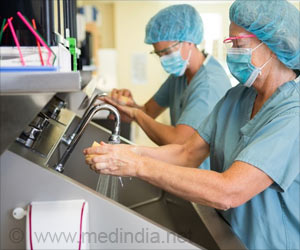Highlights:
- The Global Handwashing day is usually celebrated on 15th October annually.
- Every year around 1.4 million child deaths and 15% infant deaths occur with either diarrhea, pneumonia or infectious diseases.
- Simple handwashing with soap just before and after the use of toilet could reduce the chances of diarrheal and respiratory infections by 25% among children under the age of 5.
- Good handwashing practices can prevent various disease outbreaks, reduce school absenteeism among kids, and improve healthcare outcomes.
About Global Handwashing Day
Global Handwashing Day was initially founded in 2008 by the Global Handwashing Partnership (GHP) and it’s partner organizations to promote handwashing with soap as key to better health and development.
How to Promote Handwashing with Soap, Beyond Handwashing Day?
If you are a parent?
- Encourage proper handwashing practices at schools and playgrounds
- Enquire about the school's handwashing stations and facilities
- Make sure your home has a handwashing area with water and soap near or inside the toilet to encourage after wash behavior
- Explain the importance of proper soap handwash and demonstrate the same behavior yourself
- Ensure that the school has a handwashing station near the toilet with soap
- Inspect the stations and promote good maintenance of the facility
- Conduct engaging handwash awareness programs and you may incorporate them into lesson plans
- Implement hygiene into other projects related to sanitation, child health and nutrition
- Work towards increasing handwashing with soap and wash investments from donors and governments
- Encourage policies and raise national standards for handwash in schools
- Review budgets and support handwash programs in schools and health facilities
Facts on Handwashing
- Every year, around 1.4 million child deaths and 15% infant deaths occur with either diarrhea, pneumonia or infectious diseases
- Most countries in Africa were found to have less than 50 percentage basic handwashing facilities in 2015
- Children under the age of 5 can decrease their of acquiring pneumonia and diarrhea by 46 and 44 percent by handwashing with soap
- Lack of access to handwash can contribute to some of the leading killer diseases of children under 5 such as pneumonia, diarrhea etc
- Globally around 300,000 to 40,000 babies die annually from post-partum infections
- Handwashing by midwives before delivering babies may reduce the mortality rates by 19 percentage
- An average person can encounter almost hundred chemicals before breakfast
- Greater than 1 in 3 health facilities don’t have access to water in low and middle-income countries
Studies on the Importance of Handwashing
In rural Zimbabwe, Dr.Mosler and his colleagues carried out a survey on handwashing behavior to develop a behavior change program to increase the perception of consistent handwashing. This program led to the increase of handwashing behavior, with an increase of 30% after defecation process, and 20% after meals and this also led to other’s approval of hand washing. In another study, Dr. Hussam and her colleagues carried out a controlled study based on habit formation and nudging technique to make them handwash after meals in West Bengal. In this particular study, motivational incentives with benefits were provided during the monitoring process and were also motivated to receive further incentives.
As a result, both incentives and monitoring had increased the handwashing behavior by 23 and 70 percentage in short-term and by incentives. Among all the intervention groups, the children had 39.5 and 23 percentage lesser days with diarrhea and acute respiratory infections.
When Should you Wash your Hands?
- Before, after or during food preparation
- Before and after meals
- Before and after helping a sick person
- After toilet use
- After changing a baby's diapers
- After touching an animal, animal feed and its waste
- After throwing out the garbage
What is the Right Way to Wash your Hands?
- Wet your hands under the clean running water
- Turn off the tap and apply soap or handwash liquid
- Lather your hands
- Lather the back of your hands, in between your fingers and under your nails
- Keep scrubbing your hand for at least 20 seconds
- Rinse properly under the running water
- Pat them dry with a clean towel or cloth
References:
- Global Handwashing Day 2017 Press Release - (https://globalhandwashing.org/press-release-global-handwashing-day-celebrated-october-15th/)
- Beyond Global Handwashing Day - (https://globalhandwashing.org/beyond-global-handwashing-day/)
- Soap Facts - (http://www.globalsoap.org/our-work/soap-facts/)
- Handwashing with Soap, Where Are We? - (https://globalhandwashing.org/handwashing-with-soap-where-are-we/)
- Show Me the Science - Why Wash Your Hands? - (https://www.cdc.gov/handwashing/why-handwashing.html)
- Wash Your Hands - (https://www.cdc.gov/features/handwashing/index.html)









